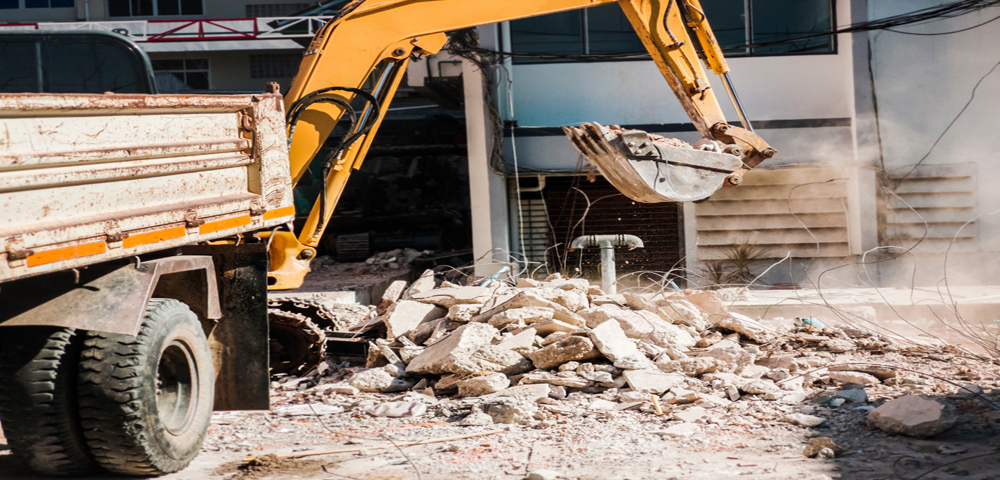Role of Demolition Contractors in Urban Regeneration
Urban regeneration is a multifaceted process aimed at reviving and rejuvenating urban areas, often characterised by dilapidated infrastructure, abandoned buildings, and social deprivation. In this complex endeavor, demolition contractors play a crucial role in clearing the path for renewal and transformation. Their expertise in safely and efficiently dismantling structures lays the foundation for new developments, revitalised communities, and sustainable urban landscapes.
This article delves into the pivotal role of demolition contractors in urban regeneration, exploring their responsibilities, challenges, and contributions to shaping the cities of tomorrow.
The Role of Demolition Contractors:
- Site Clearance and Preparation:
- Demolition contractors are tasked with the initial phase of clearing sites earmarked for regeneration projects. This involves the systematic dismantling and removal of existing structures, including buildings, bridges, and infrastructure.
- Their expertise in controlled demolition techniques ensures that structures are dismantled safely, minimizing risks to surrounding properties and the environment.
- Site preparation also involves the clearance of debris, hazardous materials, and the implementation of environmental safeguards to mitigate any potential contamination.
- Infrastructure Renewal:
- Demolition contractors are instrumental in removing outdated or dilapidated infrastructure, such as bridges, viaducts, and roads, which may hinder urban regeneration efforts.
- By clearing obsolete infrastructure, demolition contractors pave the way for modernization and the implementation of efficient transportation networks, enhancing connectivity and accessibility within urban areas.
- Brownfield Redevelopment:
- Brownfield sites, characterized by former industrial or commercial activities, often present significant challenges for redevelopment due to contamination and structural issues.
- Demolition contractors specialize in the remediation and clearance of brownfield sites, preparing them for redevelopment into residential, commercial, or recreational spaces.
- Their expertise in handling contaminated soil and hazardous materials is critical for ensuring the safe and sustainable reuse of brownfield sites, minimizing environmental risks and maximizing economic potential.
- Structural Assessment and Salvage:
- Before demolition activities commence, demolition contractors conduct comprehensive structural assessments to determine the condition of existing buildings and infrastructure.
- In some cases, salvageable materials such as bricks, timber, and metal may be identified for recycling or reuse in subsequent construction projects, reducing waste and resource consumption.
- Demolition contractors employ advanced techniques such as deconstruction, which involves carefully dismantling structures to preserve valuable materials and architectural elements.
Challenges Faced by Demolition Contractors:
- Safety and Environmental Concerns:
- Demolition activities inherently pose risks to workers, bystanders, and the environment if not executed with precision and caution.
- Demolition contractors must adhere to strict safety regulations and protocols to mitigate hazards such as structural collapse, airborne pollutants, and noise pollution.
- Environmental considerations, including the disposal of hazardous materials and the minimization of carbon emissions, present additional challenges that require careful planning and compliance with regulatory standards.
- Community Engagement and Stakeholder Management:
- Urban regeneration projects often impact surrounding communities, raising concerns about noise, disruption, and loss of heritage.
- Demolition contractors must engage with local stakeholders, including residents, businesses, and heritage organizations, to address concerns, solicit feedback, and foster community support for regeneration initiatives.
- Transparent communication and proactive engagement are essential for building trust and collaboration throughout the demolition process.
- Technical Complexity and Innovation:
- Demolition projects vary in complexity, requiring customized solutions and innovative techniques to overcome technical challenges.
- Demolition contractors must stay abreast of advancements in demolition technologies, such as robotic demolition equipment and building information modeling (BIM), to enhance efficiency, precision, and safety.
- Continuous training and skills development are essential for equipping demolition professionals with the expertise to tackle diverse demolition projects effectively.
Contributions to Urban Regeneration:
- Facilitating Sustainable Development:
- By clearing blighted properties and obsolete infrastructure, demolition contractors create opportunities for sustainable urban development, including affordable housing, green spaces, and mixed-use developments.
- Their efforts contribute to the revitalization of urban areas, attracting investment, fostering economic growth, and improving quality of life for residents.
- Preserving Cultural Heritage:
- Demolition contractors play a vital role in preserving and honoring the cultural heritage of urban landscapes by carefully documenting and salvaging architectural artifacts and historic elements.
- Through adaptive reuse and heritage conservation efforts, they help maintain the authenticity and character of communities, enriching the cultural fabric of regenerated urban spaces.
- Promoting Environmental Sustainability:
- Demolition contractors prioritize environmental sustainability by implementing best practices for waste management, recycling, and pollution prevention.
- Through the reuse of salvaged materials and the adoption of green demolition techniques, they minimize the ecological footprint of demolition activities, contributing to the overall sustainability of urban regeneration projects.
Partners in Urban Regeneration
Demolition contractors are indispensable partners in the complex and dynamic process of urban regeneration. Their expertise in site clearance, infrastructure renewal, and environmental remediation lays the groundwork for sustainable development, cultural preservation, and community revitalization.
Despite facing numerous challenges, from safety concerns to stakeholder engagement, demolition contractors continue to innovate and collaborate to shape the cities of tomorrow. As catalysts for positive change, their contributions are integral to creating vibrant, resilient, and inclusive urban environments for generations to come.
